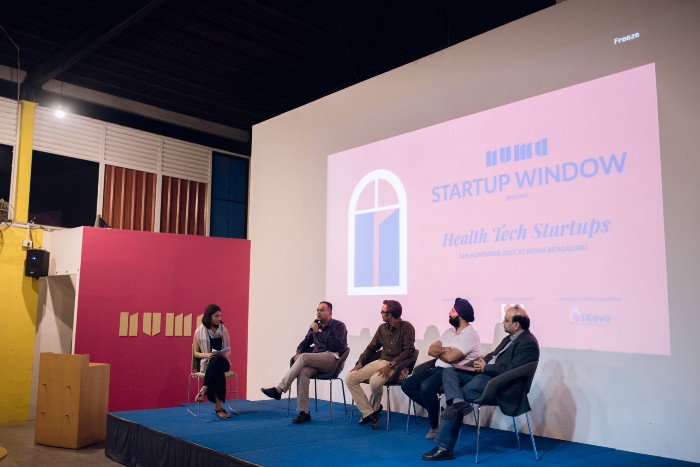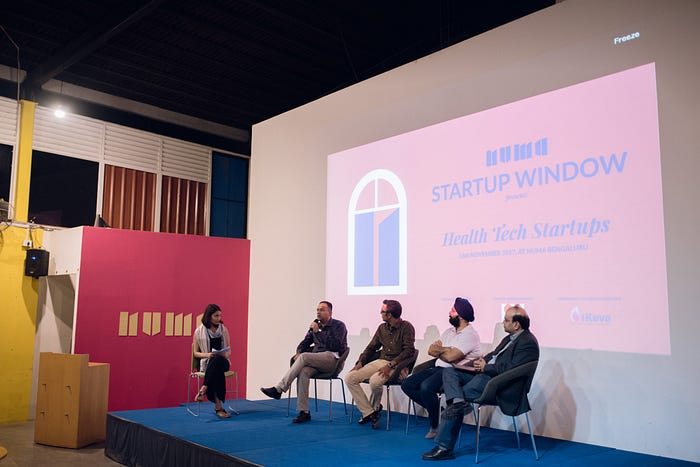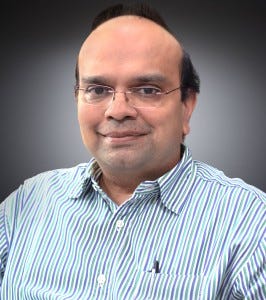Learnings from NUMA Startup Window on HealthTech

Healthtech is a promising field which has the potential to create a profound impact and transform lives in the process.

HealthTech is the approaching frontier for innovation. The products range from apps and social networks to robots and complex simulators, all sharing a common goal-to leverage new technology to revolutionize an old industry.
Our flagship event, Startup Window was organized on the 16th of November, 2017 and the theme was ‘’HealthTech’’.
As a market, healthcare is today one of India’s largest sectors both in terms of revenue and employment. The overall Indian healthcare market is worth US$ 100 billion and is expected to grow to $ 280 billion by 2020.
The emerging trends range from apps and social networks to robots and complex simulators:
- Medical e-commerce: The retail medicine sales market is expected to reach $55 billion in 2020 as more startups enter the segment with innovative business models backed by global investors.
- Telemedicine: Medical infrastructure in India is concentrated in the urban areas, while the largest population is in rural areas: Startups are trying to bridge this gap via the use of technology. In 2010, the Indian telemedicine market was estimated to be Rs.50 crores and is expected to grow at 20% rate.
- Electronic medical records (EMRs): patient medical records available on a cloud platform for better diagnosis.
Predictive healthcare via the use of wearable devices that monitor a person’s vitals and using the data available on a cloud platform to warn the patient.
In a city bustling with tech ventures, multiple collaborations among engineers, doctors, and designers have actuated a wave of startups to build products which can save the lives of millions. In the past one year, at least six companies and two incubators have mentored fledgling health tech firms which have emerged on the block. A few veterans hailing from the medical engineering industry who were associated with behemoths like GE, Siemens or Philips and had set up research labs in Bangalore at the turn of the century have been contributing significantly to the amelioration of health technology.
Startups Pitch:

Four startups pitched in this event. They were as follows:
- Cardiotrack — A cardiac healthcare diagnostics company which allows seamless transfer of ECG along with alert to receive physician in the form of message with possible diagnosis
- Medinfi — A startup which empowers users with trusted information for taking healthcare decisions
- OliveWear — It is geared towards improving maternal healthcare
- Raybaby — It is a ‘’deep tech’’ product that utilizes AI and Digital Signal Processing algorithms to make sense of the raw data streaming which is essentially the baby’s breathing in its basic form.
Panel Discussion:

The panel speakers included Tony D S Raj, Dean at St. John’s Research Institute, Arun Mallavarapu, co-founder at Fedo with more than 13 years of experience in Healthcare, Brij Bhasin, Principal-India Investment Lead at Rebright Partners and Kedar Medhi, Director at Philips Innovation Campus.
Tony D S Raj, Dean at St. John’s Research Institute

He stated that the healthcare industry is not resistant to disruption by innovators notwithstanding the challenges put forth by the traditional system. Hospitals have opened its doors to startups and have been working closely to mold technology which can be immensely beneficial for patients as well as the healthcare sector. The keynote speaker and the panelist also opined that fostering healthcare technology is a catalyst for a more sustainable healthcare system. He elucidated the Kangaroo Mother Care (KMC) which is a key potential life-saver for preterm and low birth weight infants. The cardinal objective of this project is to design, develop and evaluate an innovative Remote BioMonitoring device used for efficaciously tracking KMC adherence as well as tracking newborn (and maternal) temperatures which are coupled with data analytics to trigger action from the level of the peripheral health worker in selected study settings in southern India.
Innovations in the healthcare domain have come to prominence recently. Internet of Things related systems such as a passive RFID wearable wristbands and wall-mounted dispensers have reinforced Hand hygiene which is a significant method to mitigate infection transmission in hospitals. Simulation for medical and healthcare applications is in a relatively nascent stage of development. However, it has the potential to inform the process of extensive research and dissemination. The development of mannequin simulators which are used for education, training, and research is thoroughly reviewed thereby tracing the motivations and evolution to commercial availability. A conscious effort is made to assess the efficacy of those which would be considered for teaching cardiopulmonary resuscitation, cardiology skills, anesthesia clinical skills and crisis management.
Kedar Medhi, Director at Philips Innovation Campus

He expressed that it is imperative to leverage on opportunities in health and healthcare especially in an aging world where chronic diseases are steadily on an incline. He also expressed that Philips has successfully managed to maintain a healthy relationship with its startups beyond the programme and that is solely based on the increase in value addition for the right proposition. The brand also has an edge in India attributing to the trust the brand enjoys in the country predominantly for being a technology leader. The familiarity of the company with the domestic market and its dominant position in the medical equipment category contribute immensely to its popularity.
Philips rolled out Project Vijay which is a pilot project for the delivery of home healthcare in India in October 2015. A year later, it formed Philips Home Care Services (PHCS), a wholly owned arm of Philips India. It utilized technology as a method to provide remote care for patients and in the process, they came up with interesting findings. This included a 27% reduction in the cost of care, 32% decline in acute and long-term costs and 45% drop in hospitalization.
Brij Bhasin, Principal-India Investment Lead at Rebright Partners

He stated that it is crucial to provide value that is measurable. He also emphasized the significance of promoting technology solutions to the healthcare fraternity. This can be achieved when the corporates and startups collaborate to build innovative products.
India’s healthcare industry is expected to reach $280 billion in the next 10 years. The country has also become one of the preeminent destinations for high-end diagnostic services with tremendous capital investment for advanced diagnostic facilities and therefore, it has managed to cater to a greater proportion of the population. Indian medical service consumers with the passage of time have become more conscious towards their healthcare upkeep.
Arun Mallavarapu, Co-founder at Fedo

He mentioned that the Indian healthcare sector is diverse and opportunities galore in every segment which include providers, payers, and medical technology. India is also cost competitive compared to its peers in Asia and Western countries thereby allowing businesses to explore the latest dynamics and trends that can revolutionize the healthcare sector. The conditions have improved significantly with hospitals and diagnostic centers attracting Foreign Direct Investments. The central and state governments offer universal healthcare services, free treatment, and essential drugs at government hospitals. However, there are a lot of challenges. Hospitals are often understaffed and under-financed thereby forcing patients to visit private medical practitioners and hospitals. Also, there is a huge disparity in rural and urban healthcare infrastructure.
As technology progressively plays a dominant role in healthcare, the data indicates growing attention from private investment and start-ups. Individual states are adopting technology to support health-insurance schemes. For instance, Remedinet Technology (India’s first completely electronic cashless health insurance claims processing network) has been signed on as the technology partner for the Karnataka Government’s cashless health insurance schemes.
Healthcare delivery in India is now uniquely placed to undergo a radical transformation at all its stages — prevention, diagnosis, and treatment. No single entity in the healthcare sector can work in silos. The evolution of the sector necessitates involvement from all stakeholders. Ultimately, Innovation is the key to bridge intent and execution.
Looking forward to hosting you at our upcoming Startup Window on ‘’Blockchain and Cryptocurrency’’ which is scheduled to be held on the 21st of December. Register here.
Recent Posts
- How we assisted a prominent jewellery brand in India to enhance customer experience by streamlining billing processes and reducing turnaround time.
- How we developed an acceleration program involving internal teams for India’s largest food and beverage company.
- How we supported a multinational energy and petroleum company to promote a culture of customer centricity across various functions.
- How we empowered high-potential executives at a Swiss manufacturer of escalators, moving walkways, and elevators to leverage design thinking methodologies in crafting innovative products and services.
- How we guided Indian employees of an American pharmaceutical company to adopt the practice of identifying precise problem statements before delving into solution mode.
